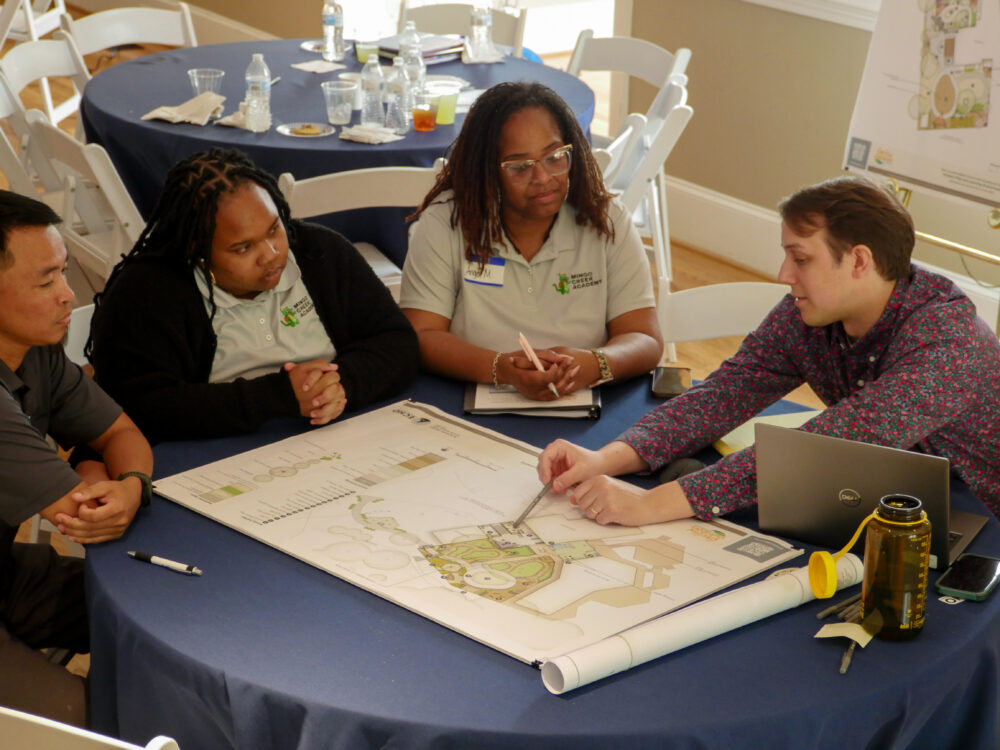We have much more to do and your continued support is needed now more than ever.
Plastics Reduction Partner Awardees
National Wildlife Federation certifies first campuses as Plastics Reduction Partners, Bard College and Cal Poly Humboldt
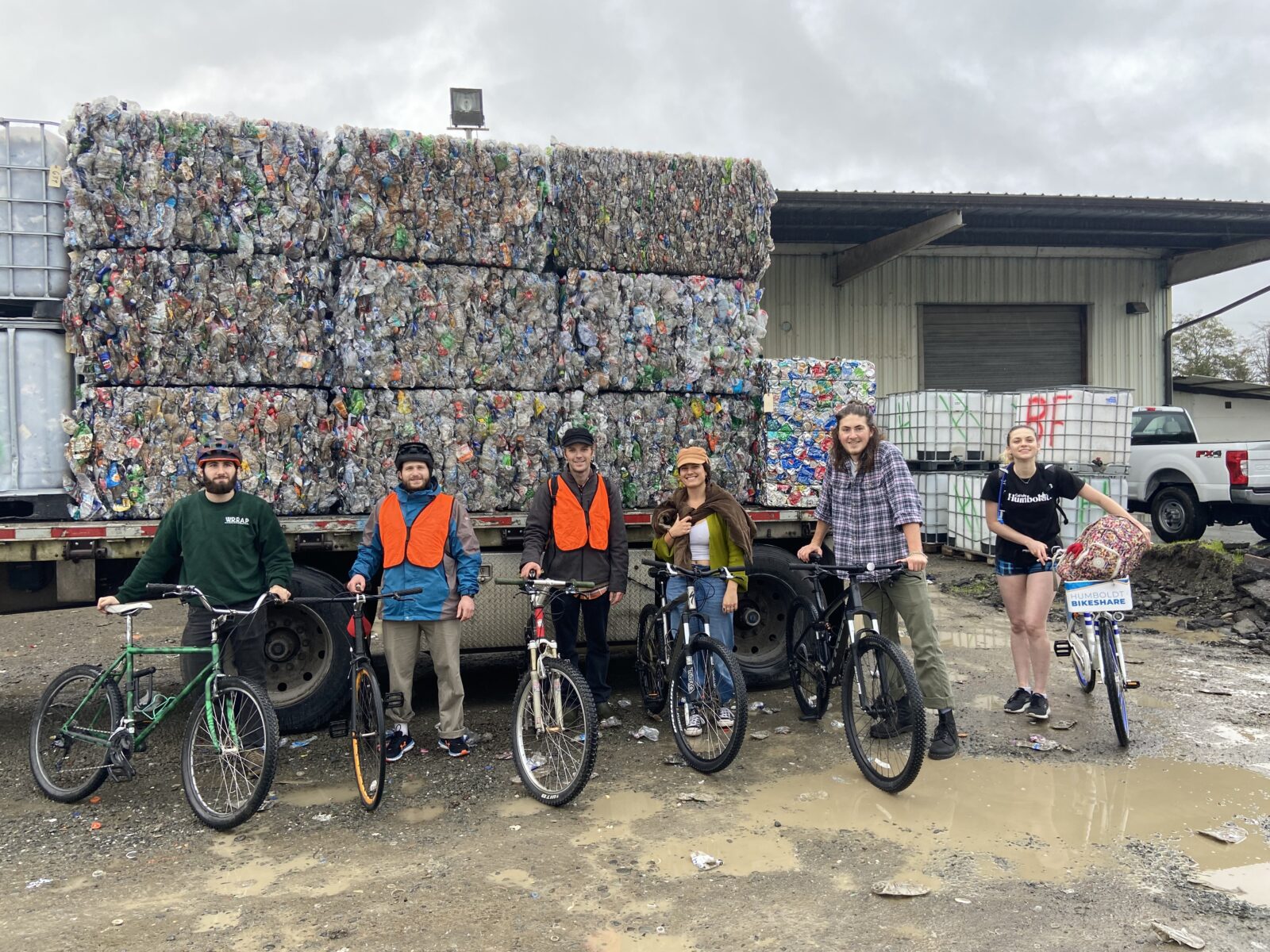
The National Wildlife Federation, in partnership with the Campus Race to Zero Waste Program, is excited to award Bard College in New York and California State Polytechnic University, Humboldt, the Plastics Reduction Partner Bronze level certification for their efforts to reduce single-use plastics on campus.
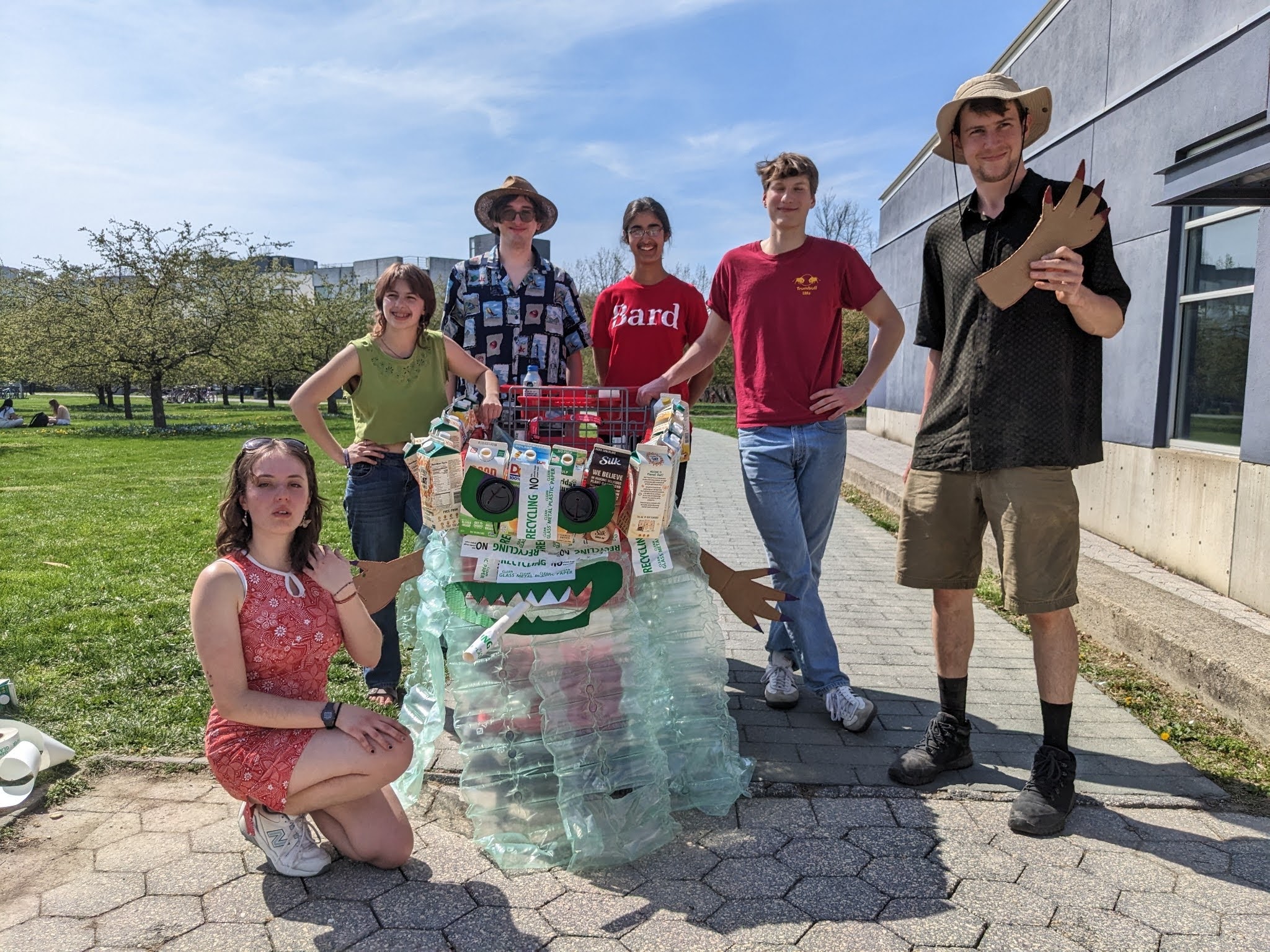
Plastic pollution is rising as a critical threat to the world’s wildlife and to human health, with at least 14 million tons of plastic entering the ocean every year, causing injury or death to hundreds of marine species that ingest or become entangled in plastic debris. And 51 trillion microplastic particles can be found in the ocean and the fish we eat from food and beverage containers, personal care products, etc. There are few solutions to this problem as important as engaging America’s higher education institutions on the dangers of plastics build-up, and how the problem can be addressed through the reduction of purchase and use in campus dining facilities, laboratories, academic buildings, and more.
The Plastics Reduction Partner, launched in 2022, is the only certification program in the U.S. that recognizes colleges and universities for taking action to reduce the purchase and use of single-use plastics on campus. There are three levels of certification available: bronze, silver and green (introductory to advanced), and a comprehensive framework featuring four action areas, including building awareness, supporting behavior change, assessing and implementing operational change, and demonstrating institutional leadership. Bard and Cal Poly Humboldt are the first colleges and universities certified in the U.S.
“Bard students are eager to defeat the monster that plastic has become; in fact, they literally created a grocery cart filled plastic monster during the yearlong effort to get certified. More generally, we know it is our responsibility to connect the dots between the explosive use of single use plastics, the burning of fossil fuels used to create them, and their direct impact on the climate crisis. In deciding whether to pursue certification, it was important that the project could be student-led and offer teaching moments to both the student leaders and the people they were interviewing. Next steps will be to fill some of the gaps we identified including creating a Green Events guide in collaboration with our new campus dining partner and continue advocacy work.”
Laurie Husted, Chief Sustainability Officer at Bard College
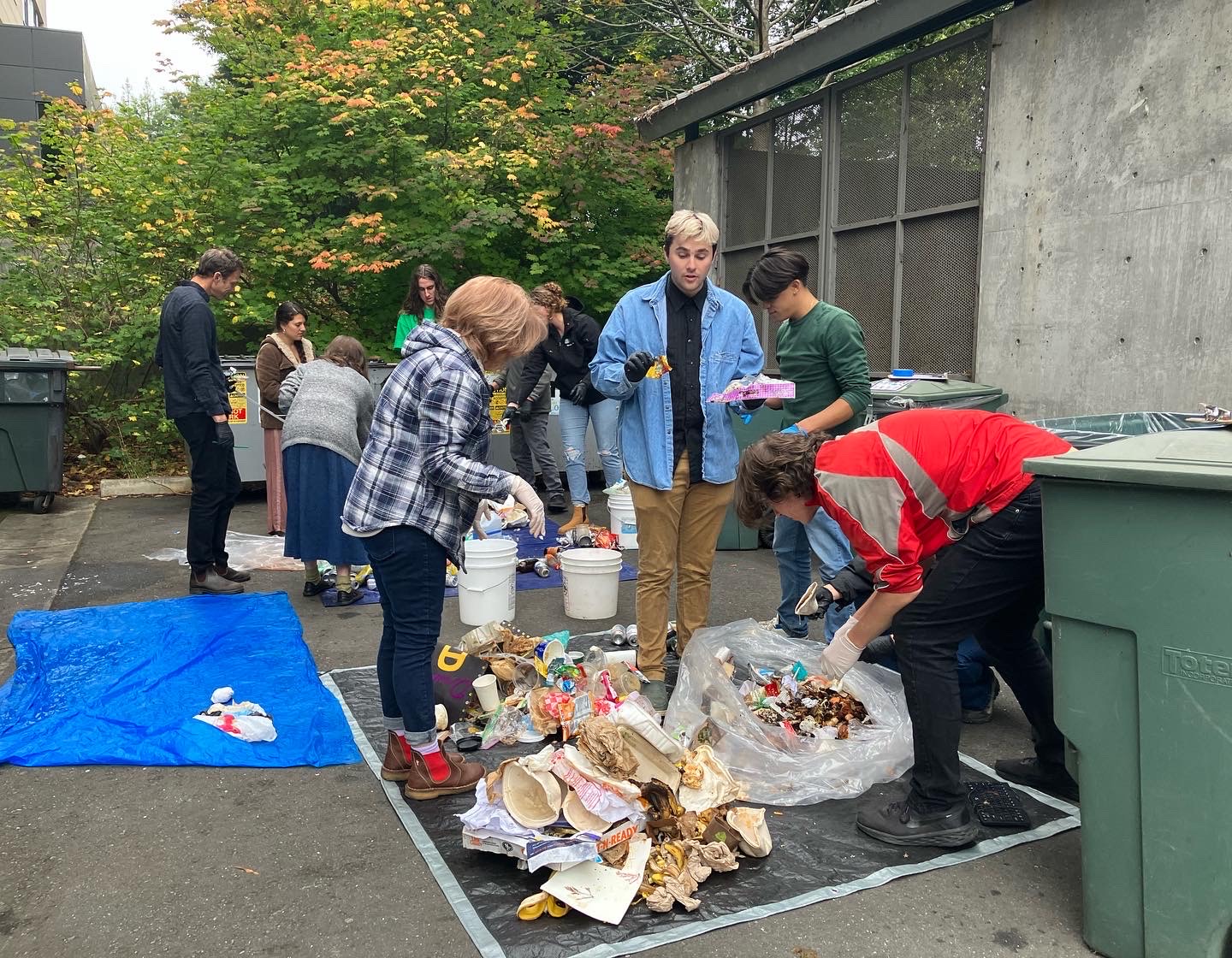
“At Cal Poly Humboldt we are very concerned about the global plastic pollution crisis and its impact on all life forms, including us humans. While we all can take strides to reduce plastics consumption in our own lives, we recognize that the focus really needs to be on source reduction and the elimination of plastics from our campus. Thanks to this program we now have a demonstrated commitment from our leadership and a pathway for achieving targeted reductions through changes in purchasing, policy, education and engagement. While reducing the purchase and use of plastics on campus, we will graduate students with the skills and knowledge to be active agents of change in their own communities. In the coming year our big push will be to eliminate plastics from Dining Services while developing plastics education and training modules.”
Morgan King, Climate Action Analysist at Cal Poly Humboldt
The first step to becoming a Plastics Reduction Partner is to complete a commitment letter. Colleges and universities then proceed to work toward their chosen certification level by taking action and earning points in the four action areas.
The current list of Plastic Reduction Partners includes:
- Bard College, New York (Bronze Certified)
- California State Polytechnic University, Humboldt (Bronze Certified)
- Drexel University, Pennsylvania (Commitment Letter)
- Howard Community College, Maryland (Commitment Letter)
- Salisbury University, Maryland (Commitment Letter)
- St. Edward’s University, Texas (Commitment Letter)
- SUNY College of Environmental Science and Forestry, New York (Commitment Letter)
- University of California, Berkeley (Commitment Letter)
- University of Massachusetts, Amherst (Commitment Letter)
- Wenatchee Valley College, Washington (Commitment Letter)
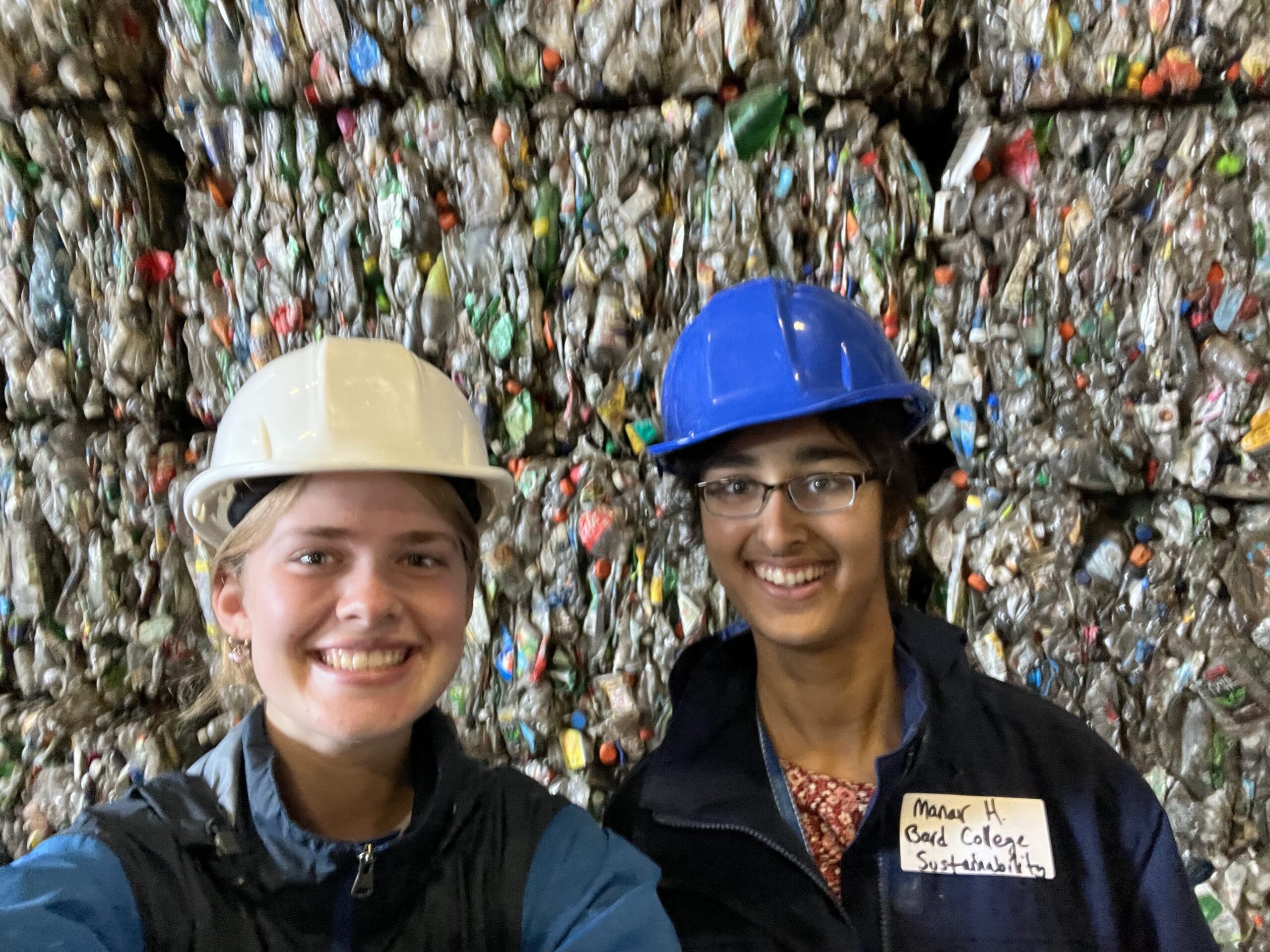
Participation in the Plastics Reduction Partner program is eligible for AASHE STARS innovation credits. Additionally, the National Wildlife Federation is a proud member of the #BreakFreeFromPlastic movement, and the Plastic Pollution Coalition.
The Plastics Reduction Partner certification program was designed by Amber Saxton, Sustainability Program Manager, Campus Efficiencies, George Mason University (Virginia), with support from Kristy Jones, Director, Higher Education Programs, National Wildlife Federation. The following campuses served on an advisory committee, providing feedback for improvement before launch of the program in early 2022: Knox College, Mount Holyoke College, SUNY College of Environmental Science and Forestry, Texas Tech University and The Ohio State University.
Learn more about the Plastics Reduction Partner program.
About National Wildlife Federation
Founded in 1936, the National Wildlife Federation is America’s largest and most trusted grassroots conservation organization with 52 state and territorial affiliates and more than six million members and supporters, including hunters, anglers, gardeners, birders, hikers, campers, paddlers, and outdoor enthusiasts of all stripes. The Federation’s mission is to unite all Americans to ensure wildlife thrive in our rapidly changing world through programming focused on conserving wildlife, restoring habitats and waterways, expanding outdoor opportunities, addressing the causes and consequences of climate change, and connecting people with nature. Education plays a vital role in connecting people with wildlife. Through programs, curriculum, scientific reports, and more, the National Wildlife Federation is furthering knowledge about nature and wildlife, and inspiring future environmental stewards.




















